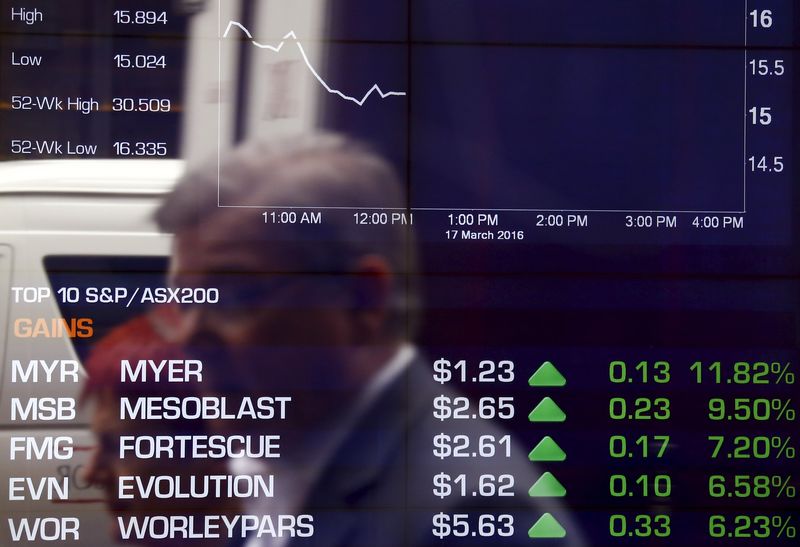The Australian share market looks set to drop when trading kicks off this morning, following a shaky day in New York.
ASX futures were down 58 points, or 0.8%, to 7,067 early this morning. What’s more, the local currency plunged 1.6% overnight to below the 64 US cents mark and is now hovering at about 63.13 US cents.
US inflation strikes again
There had been optimism in the US that the Federal Reserve had finished with rate rises for at least a little while, but hopes were dashed by the latest US inflation data.
Wall Street responded to the news accordingly, with the Dow shedding 0.5%, the S&P slipping 0.6% and the Nasdaq also dropping 0.6%.
US inflation data came in higher than expected. Consumer prices, excluding food and energy, lifted 0.3% last month, while headline prices were 0.4% higher – expectations were that these two indicators would rise only 0.3%.
The year-on-year growth rate held at 3.7%, defying predictions that it would drop to 3.6%.
Rising treasury bond yields didn’t help matters either.
Sectors traditionally considered bond proxies, such as real estate and utilities, suffered with losses between 1.3% and 1.5% on the S&P 500 index.
Individual stocks also reflected this trend, as shares of Hormel Foods (NYSE:NYSE:HRL) declined by 9.8% following its contract ratification to increase hourly wages with the United Food and Commercial Workers International Union.
Similarly, Ford Motor (NYSE:F) shares dipped 2% as the United Auto Workers union extended its strike at Ford's major factory.
The KBW bank index also retreated 1%, anticipating Friday's earnings announcements from banking giants like JPMorgan Chase (NYSE:JPM), Citigroup (NYSE:C) and Wells Fargo (NYSE:WFC).
Europe finishes higher
By contrast, European share markets displayed resilience, finishing higher on Thursday.
The continent-wide FTSEurofirst 300 index was up 0.2%, while the UK FTSE 100 index rose 0.3% following data showing the UK economy grew 0.2% month-on-month in August, in line with expectations.
The oil and gas sector saw a 1.3% increase, notwithstanding the International Energy Agency's warning concerning oil market instability due to the ongoing Israel-Hamas conflict.
Pharmaceutical company Novo Nordisk (CSE:NOVOb) (NYSE:NVO)'s shares surged by 4.2%, buoyed by promising early results in delaying kidney disease in diabetes patients.
Further, minutes from the European Central Bank's September meeting revealed a division among policymakers but also indicated an end to the current policy tightening cycle.
Currencies and commodities
Currencies weakened against the US dollar in both European and US trading sessions. The Euro experienced a decline from US$1.0637 to US$1.0524, settling near US$1.0530 at the US market close.
The Australian dollar followed suit, dropping from 64.29 US cents to 63.07 US cents and was near 63.15 US cents at the US close. Meanwhile, the Japanese yen also eased, moving from 148.95 yen per US dollar to JPY149.83, and stabilising near JPY149.80 by the US market close.
Commodity markets exhibited mixed trends. US oil prices faced downward pressure, particularly after US government data revealed a significant increase in crude inventories.
Stocks rose by 10.2 million barrels last week to reach 424.2 million barrels, far surpassing analyst expectations of a modest 500,000 barrel rise.
As a result, the US Nymex crude price fell by US58 cents or 0.7% to US$82.91 a barrel. Contrarily, Brent crude displayed resilience, marking an increase of US18 cents or 0.2% to stand at US$86 a barrel.
In the realm of base metals, a strong US dollar contributed to a decline in prices. Copper futures witnessed a 0.6% reduction, while aluminium futures slid by 0.5%.
Gold prices also retracted, with gold futures dipping by US$4.30 or 0.2% to US$1,883 an ounce; spot gold was trading near US$1,868 an ounce at the US close.
Iron ore futures were not exempt from the trend, declining from US89 cents or 0.8% to US$117.42 a tonne. These market movements suggest a prevailing influence of the US dollar strength and fluctuating commodity inventories on asset values.
